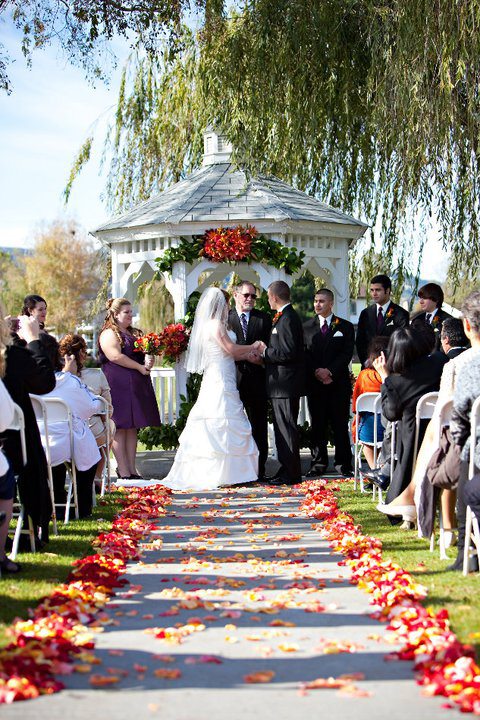In What Order Should You Plan a Wedding?
In What Order Should You Plan a Wedding? Planning a wedding can be one of the most exciting yet overwhelming experiences in your life. With so many details to consider, it’s easy to feel lost. If you’re asking yourself, “How do I start planning my wedding?” you’re not alone. This guide will help you navigate the essential steps in the right order to ensure your big day goes off without a hitch.
1. Set Your Budget
Before diving into the details, the first step in planning your wedding is to establish a budget. This will serve as your financial roadmap and help you make informed decisions as you move forward. Consider all potential expenses, including venue rentals, catering, attire, flowers, photography, and entertainment.
Tips for Budgeting:
- Discuss with your partner what aspects of the wedding are most important to both of you.
- Don’t forget about hidden costs like gratuities and taxes.
- Create a spreadsheet or use budgeting apps to keep track of expenses.
2. Create Your Guest List
Once you have a budget in place, it’s time to create your guest list. This step is crucial as it will influence many other decisions such as venue size and catering costs.
How to Create Your Guest List:
- Start with immediate family and close friends.
- Consider whether you’ll have an intimate gathering or a larger celebration.
- Be prepared for some tough decisions; not everyone can make the cut!
3. Choose Your Wedding Date
With a rough idea of how many guests you’ll invite, it’s time to choose your wedding date. Keep in mind that certain dates may be more popular than others (think holidays or weekends), which could affect availability and pricing.
Factors to Consider:
- Seasonal weather conditions
- Availability of key guests
- Venue availability
4. Book Your Venue
The venue is one of the most significant aspects of any wedding and often requires booking well in advance—sometimes even up to two years ahead! Once you’ve chosen your date and estimated guest count, start visiting venues that fit within your budget.
Venue Selection Tips:
- Consider both indoor and outdoor options.
- Check for amenities like parking and accessibility.
- Ask about vendor restrictions; some venues require you to use their preferred vendors.
5. Hire Key Vendors
After securing your venue, it’s time to hire essential vendors such as caterers, photographers, florists, and entertainment providers. These professionals will play vital roles in bringing your vision to life.
Vendor Hiring Checklist:
- Research multiple options before making decisions.
- Read reviews from past clients.
- Schedule consultations or tastings when possible.
6. Choose Your Wedding Theme and Style
Now that you’ve got some foundational elements sorted out, it’s time to think about the overall theme and style of your wedding. This includes colors, decorations, attire for both partners and bridal party members.
Ideas for Themes:
- Rustic
- Vintage
- Modern elegance
Consider creating a mood board on platforms like Pinterest for inspiration!
7. Send Save-the-Dates
Once you’ve finalized key details like venue and date—and if you’re having a larger guest list—it’s wise to send out save-the-date cards early on (typically six months before). This gives guests ample notice so they can plan accordingly.
Save-the-Date Tips:
- Include essential information: names, date, location (if known).
- Use designs that reflect your theme!
8. Finalize Details with Vendors
As the big day approaches—typically three months out—it’s time for final meetings with all vendors involved in your wedding day logistics:
What To Discuss:
- Confirm timelines (when they should arrive/set up).
- Review contracts for any last-minute changes.
This is also an excellent time for any last-minute adjustments based on RSVPs!
9. Plan Your Ceremony
Your ceremony is one of the most meaningful parts of your wedding day; therefore it deserves special attention! Work closely with officiants regarding vows or readings you’d like included.
Ceremony Planning Checklist:
- Decide on music selections.
- Choose who will participate (readers or musicians).
Don’t forget about rehearsal arrangements too!
10. Prepare for Day-of Logistics
As you get closer—about one month out—start preparing logistics for the actual day:
Day-of Coordination Tips:
- Create timelines for each part of the day (ceremony start times etc.).
- Assign someone trustworthy as point person who can handle issues if they arise during events!
In What Order Should You Plan a Wedding? – Conclusion: Enjoy Every Moment
Planning a wedding can feel daunting at times but remember: this is also an exciting journey leading up to one of the happiest days of your life! By following these steps in order—from budgeting through final preparations—you’ll find yourself asking less “How do I start planning my wedding?” and more “How can I enjoy this process?”
Take deep breaths along the way; lean on friends or family when needed—and most importantly: savor every moment leading up until “I do!”
Visit our blog page for more articles



Follow Us!